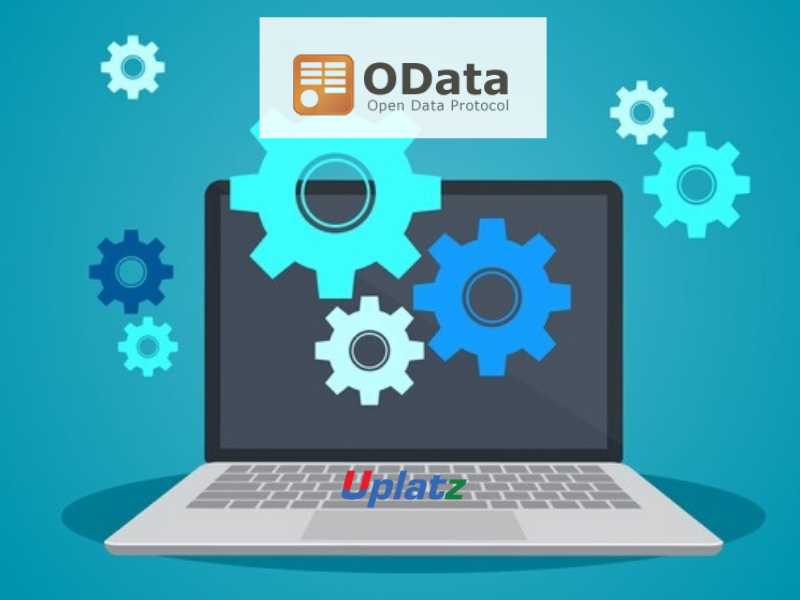OData (Open Data Protocol)

OData means Open Data Protocol. Odata is a uniform procedure built over existing HTTP and REST protocols in support of the four basic functions of persistent storage CRUD -Create, Read, Update, and Delete, to create and consume data APIs. RESTful API’s are build and consumed with the help of best practices recognized by OData. Odata is used to find out changes for recognizing functions for reusable actions and transfer batch requirements. OData provides ability for addition to complete the custom needs of RESTful APIs. It is based on REST protocol for query and updating of data. Odata is built on uniform technology such as HTTP, Atom/XML, and JSON. It supports to center on the logic of the business, while constructing RESTful APIs.
Learn OData in detail with Uplatz.
OData (Open Data Protocol)
SAP Netweaver Using OData Online Training Course Content
1. Introduction NetWeaver Gateway
2. NetWeaver Gateway Usage
3. Gateway Architecture overview
4. Technical Components Involved
5. Introduction to REST
6. Introduction to OData
7. OData advantages
8. Introduction to OData formats JSON and XML
9. Overview of Structure of an OData Service
10. Overview of Service Document
11. Overview of Service Metadata Document
· Create
· Read
· Update
· Delete
12. OData Query Options
13. Filtering and Projecting ($filter and $select)
14. Sorting ($orderby)
15. Client-Side Paging ($top, $skip, and $inlinecount)
16. Counting ($count)
17. Inlining ($expand)
18. Formatting ($format)
19. Introduction to OData Service Creation
20. Service Creation Process Overview
21. SAP NetWeaver Gateway Toolset
22. SAP NetWeaver Gateway Service Builder
23. Beyond the Service Builder: Supporting Tools during the Service Creation Process
24. Steps in the Service Creation Process
25. Data Model Definition in the Service Builder
26. Service Registration in the SAP Business Suite System
27. Service Implementation
28. Service Maintenance
29. The OData Channel Development Paradigm
30. Model Provider Class
31. Data Provider Class ad Data Provider Extension Class
32. Service Development
33. Data Model Definition
34. Creating a Project
35. Creating the Data Model
36. Service Registration in the SAP Business Suite System
37. Service Maintenance
38. Incremental Service Implementation and Model Enhancement
39. Feed (GET_ENTITYSET)
40. Single Read (GET_ENTITY)
41. Query Options
42. Navigation Properties
43. CRUD Methods
44. Service Generation
45. Generation via RFC/BOR Interface
46. Data Model Definition
47. Service Registration: Stub Creation
48. Service Maintenance
49. Service Implementation
Model Composition: Include Gateway Service
All SAP consultant certifications are now available
In the first case, API is a broad, not well-defined term and so is API testing.
We will use a different terminology and talk about system tests for OData services. Systems tests are black box tests that execute and validate a function belonging to a software product addressing all required components and their integration. That is, no component is replaced by a test-double – the complete stack is tested.
In contrast, integration tests and component tests address single components or the integration of components while isolating certain other components. The application logic exposed by an OData service should be covered by such tests (and unit tests, of course).
OData system tests require an OData client. Your test must address the OData service like any other “external” consumer. This does not imply that the OData client has to reside outside the system. The test just needs to call operations of the OData service as if they originated outside the system. We will an example below.
Having an OData client is one thing. For proper testing, it must be embedded in a test framework that manages test cases, controls test execution, monitoring and test result reporting.
------------------------------------------------------------------
There is a high-growth career path for Odata is a uniform procedure built over existing HTTP and REST protocols in support of the four basic functions of persistent storage CRUD -Create, Read, Update, and Delete, to create and consume data APIs.
------------------------------------------------------------------
Following are some of the key job titles:
-
SAP ABAP ODATA
-
SAP ODATA Developer
-
sap abap odata consulant
-
SAP OOABAP Consultant - OData
-
SAP Consultant (SAP ABAP OData with UI5 and fiori)
------------------------------------------------------------------








